 Petzlover
PetzloverRussian Blue is originated from Russia but Torby is originated from United States. Both Russian Blue and Torby are having almost same weight. Both Russian Blue and Torby has almost same life span. Both Russian Blue and Torby has same litter size. Russian Blue requires Low Maintenance. But Torby requires Moderate Maintenance
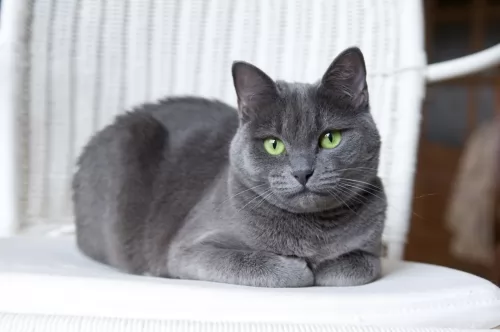 It is believed that this beautiful cat originates from Russia, and more specifically the Archangel Isles.
It is believed that this beautiful cat originates from Russia, and more specifically the Archangel Isles.
It is also thought that these cats descended from cats that were kept by the Russian Czars and that they arrived in England and Northern Europe during the 1860s. It appeared in cat shows and by 1912 it was given its own classification.
The cat was also introduced to the United States in the early 1900s and today it is a popular domesticated pet.
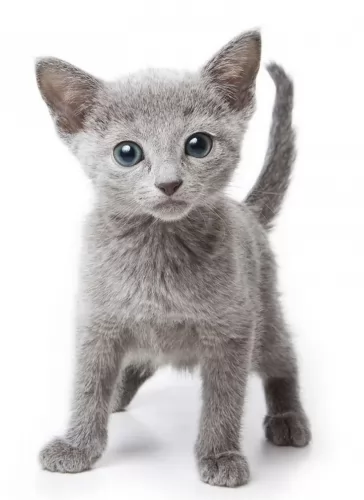 The medium-sized Russian blue cat is slender, strong, and muscular with long legs. He can weigh between 3 and 6kg.
The medium-sized Russian blue cat is slender, strong, and muscular with long legs. He can weigh between 3 and 6kg.
He has a beautiful blue, soft double coat that is short and thick. The coat is an even color with silver tips. What is an attractive feature of this cat too is that his double coat doesn’t shed much. The cat has a triangular-shaped head with yellow to green eyes.
The Russian Blue is such an amicable, sweet-tempered cat that likes nothing more than to be in the company of his human owners, He is calm and independent. They do well living with their human families but they do tend to form a deep bond with that one special person.
He will even follow his owner everywhere and is a loving, loyal companion. The Russian Blue is a social cat but also enjoys some quiet time out just to chill. He also isn’t too fond of visitors and may run away and hide if the occasion becomes too large and noisy.
This is a cat that will miss you when you’re at work all day but he is able to quietly wait for your arrival back home. Then he will appreciate some playtime.
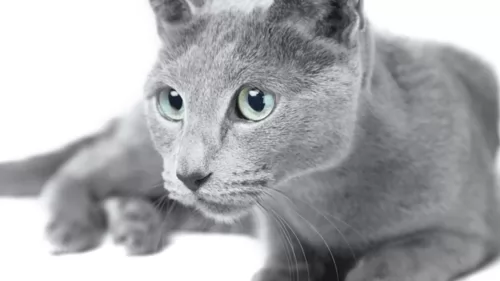 Your Russian Blue is such an intelligent cat and for this reason, when you bring one into your home, you’ll need to provide him with lots of stimulating toys and fun play times.
Your Russian Blue is such an intelligent cat and for this reason, when you bring one into your home, you’ll need to provide him with lots of stimulating toys and fun play times.
This is also a low maintenance cat and a brush once a week will be all that is required.
These are cats that love their mealtimes and you’ll want to work out a special eating program to ensure he gets all the nutrition he needs without over-eating.
Respond with lots of love and attention to your vocal Russian Blue, and you’ll soon see what a precious jewel this cat is as a companion and friend.
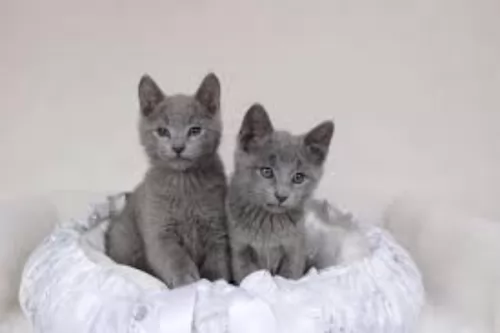 Because the Russian Blue is a naturally occurring breed, they are fairly healthy cats. Watch out for obesity and urinary tract infections with your cat.
Because the Russian Blue is a naturally occurring breed, they are fairly healthy cats. Watch out for obesity and urinary tract infections with your cat.
Obesity shortens a cat’s life. It puts extra pressure on the cat’s joints and it makes them more likely to develop disease. Then again, it is dangerous to suddenly put your obese cat on a strict diet so that he loses weight too quickly.
Your cat requires a gradual decrease in body weight. If you’re worried about your cat’s weight, rather speak to a veterinary surgeon who can explain to you and also draw up a weight loss program for your cat.
Remember too, that cats are carnivores and they simply have to have meat in their diet. Commercially manufactured cat foods of the highest quality are high in protein and low in carbohydrates.
Feline lower urinary tract disease is no joke for a cat. This disease affects your pet’s lower urinary tract – the bladder. Causes include bladder stones or bladder infections and inflammation in the urinary bladder.
You may notice your cat battling to urinate. Your cat will also no doubt cry out while trying to urinate and this is because the process is so painful. There may also be blood in the urine.
You may notice that your cat isn’t using his litter box but urinating elsewhere. Your cat will need to get to the vet as soon as possible. It may not be a life-threatening disease but it can be highly uncomfortable for your cat.
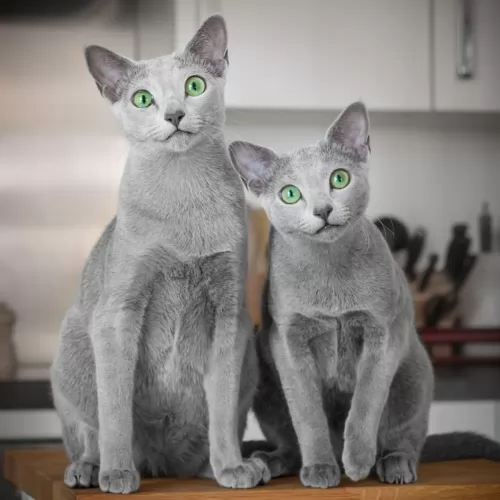 The Russian Blue’s beautiful blue coat is short and thick and will do well with a brush once a week. The cat just thrives on the attention during brush time too.
The Russian Blue’s beautiful blue coat is short and thick and will do well with a brush once a week. The cat just thrives on the attention during brush time too.
Trim your Russian blue’s nails regularly.
Provide your cat with everything he needs to make his life pleasant. Food and water bowls, a litter box, a collar and tag, a nice soft bed, grooming accessories, climbing tree, and a scratching post.
Make sure he has his cat vaccines and is treated for parasites.